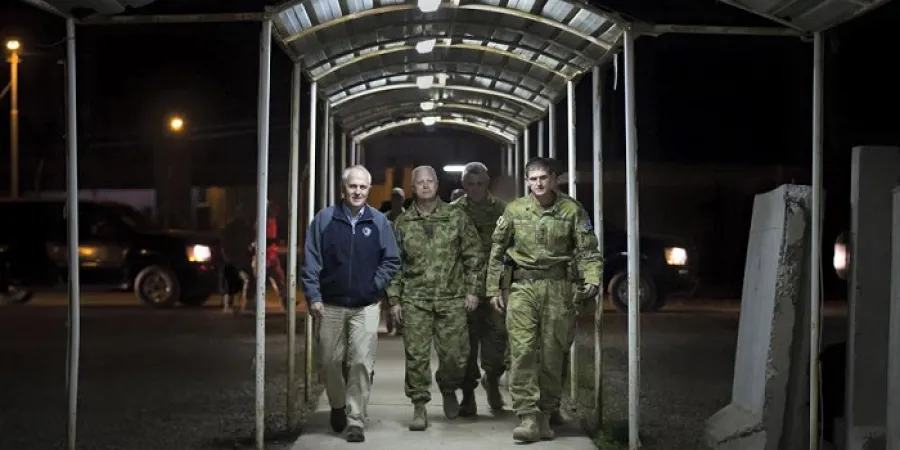Australia Pushes for Missile Defense Program
The Australians see long-range and submarine-launched ballistic and cruise missiles as a potential threat to their territory, while short-range ballistic and cruise missiles pose a threat to their deployed forces
Ami Rojkes Dombe
| 17/07/2017
Australia will press ahead with a missile defense program to protect its forces, Prime Minister Malcolm Turnbull said. According to Bloomberg, he ruled out the option of acquiring the US THAAD system.
The Terminal High Altitude Area Defense system is "not really suitable for our situation," Turnbull told reporters earlier this month. "We’re developing missile defenses," he said. "The focus is on protecting our forces both at sea and on the ground – our deployed forces in the field."
The Goal: Becoming a Major Arms Exporter
Australian Defense Industry Minister Christopher Pyne says he wants Australia to become a major arms exporter on par with Britain, France, and Germany and use exports to cement relationships with countries in volatile regions such as the Middle East, according to the Sydney Morning Herald. The ambitious goal, outlined in an interview with Fairfax Media, would mean Australia not only builds but also designs major military hardware such as warships and submarines.
According to Pyne, such exports can be used to bolster military ties with key countries in the Middle East such as the United Arab Emirates, with whom Australia shares interests such as the fight against Islamic State and balancing Iran's growing power in the region.
In order to achieve this goal, Pyne wants to use the $200 billion in additional money the government has committed to defense acquisitions over the next nine years to build up a local industry that will "eventually design, build and export ships, vehicles, missiles, whatever it might be that we have an expertise in."
The Australians see long-range and submarine-launched ballistic and cruise missiles as a potential threat to their territory, while short-range ballistic and cruise missiles pose a threat to their deployed forces
Australia will press ahead with a missile defense program to protect its forces, Prime Minister Malcolm Turnbull said. According to Bloomberg, he ruled out the option of acquiring the US THAAD system.
The Terminal High Altitude Area Defense system is "not really suitable for our situation," Turnbull told reporters earlier this month. "We’re developing missile defenses," he said. "The focus is on protecting our forces both at sea and on the ground – our deployed forces in the field."
The Goal: Becoming a Major Arms Exporter
Australian Defense Industry Minister Christopher Pyne says he wants Australia to become a major arms exporter on par with Britain, France, and Germany and use exports to cement relationships with countries in volatile regions such as the Middle East, according to the Sydney Morning Herald. The ambitious goal, outlined in an interview with Fairfax Media, would mean Australia not only builds but also designs major military hardware such as warships and submarines.
According to Pyne, such exports can be used to bolster military ties with key countries in the Middle East such as the United Arab Emirates, with whom Australia shares interests such as the fight against Islamic State and balancing Iran's growing power in the region.
In order to achieve this goal, Pyne wants to use the $200 billion in additional money the government has committed to defense acquisitions over the next nine years to build up a local industry that will "eventually design, build and export ships, vehicles, missiles, whatever it might be that we have an expertise in."



